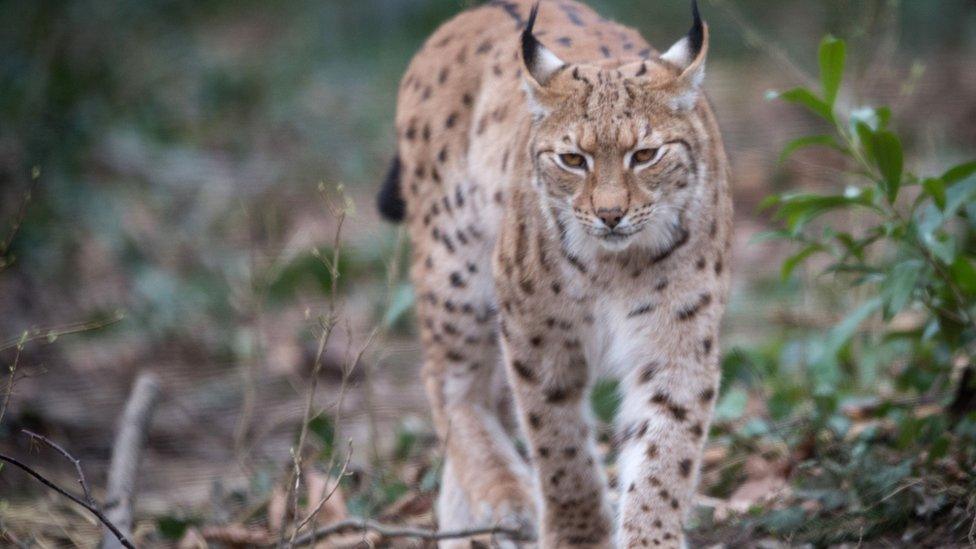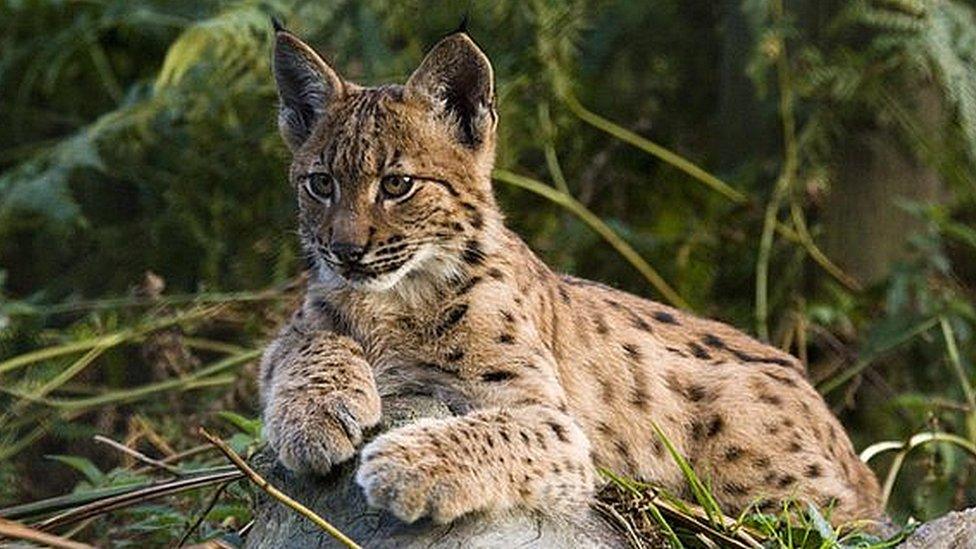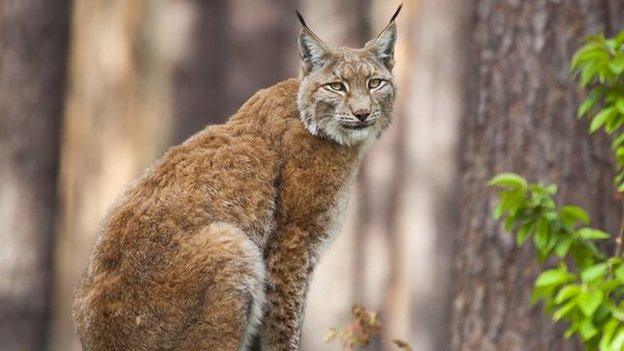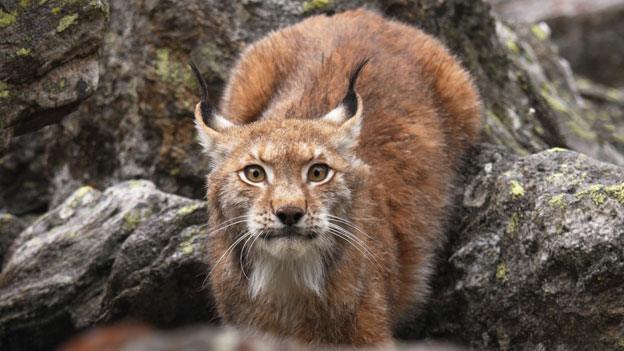Wild lynx plan 'threatens sheep farmers'
- Published

Experts say reintroduced lynx could help control the UK's deer population
Plans to reintroduce wild lynx to parts of Northumberland and Cumbria would mean "completely unjustifiable" losses for sheep farmers, a report claims.
The Lynx UK Trust wants to place up to six lynx per site as part of efforts to repopulate the species, which has been extinct in Britain for 1,300 years.
But the National Sheep Association (NSA) fears the move could damage the livelihoods of sheep farmers, external.
The trust says that if successful the trial will boost regional economies.
The trust is looking to lodge a formal application with Natural England to go ahead with the trial later this year.
'Unnecessary predator'
Its chief scientific specialist Dr Paul O'Donoghue, said: "The UK can support a population of up to 400 lynx, that is based on habitat suitability studies.
"We think conservatively that the reintroduction of lynx would be worth £60m to £70m a year to the UK economy. They will play a vital role in both promoting rural regeneration and forest regeneration.
"The experience in other parts of Europe where lynx have been reintroduced is that it results in a massive boost for the environment as well as to the economy."

Lynx cubs can expect an average lifespan of 10 years in the wild
But the NSA report calls for more research before the trial is approved.
It says: "The impacts that lynx would have on sheep are completely unjustifiable when farmers already work tirelessly for the welfare and performance of their livestock, and also to maintain their own livelihood.
"Sheep play an important part of maintaining the biodiversity of the current, perfectly functioning ecosystem, which would be disrupted by the introduction of an unnecessary predator."
The association's chief executive Phil Stoker added: "We think the UK is too small an island and too heavily populated for this and the way the countryside is managed at the moment is already good for tourism.
"Also, these animals are going to be nocturnal and extremely shy and it is going to be very unlikely that anyone ever actually gets to see one."
- Published9 March 2015

- Published9 March 2015
